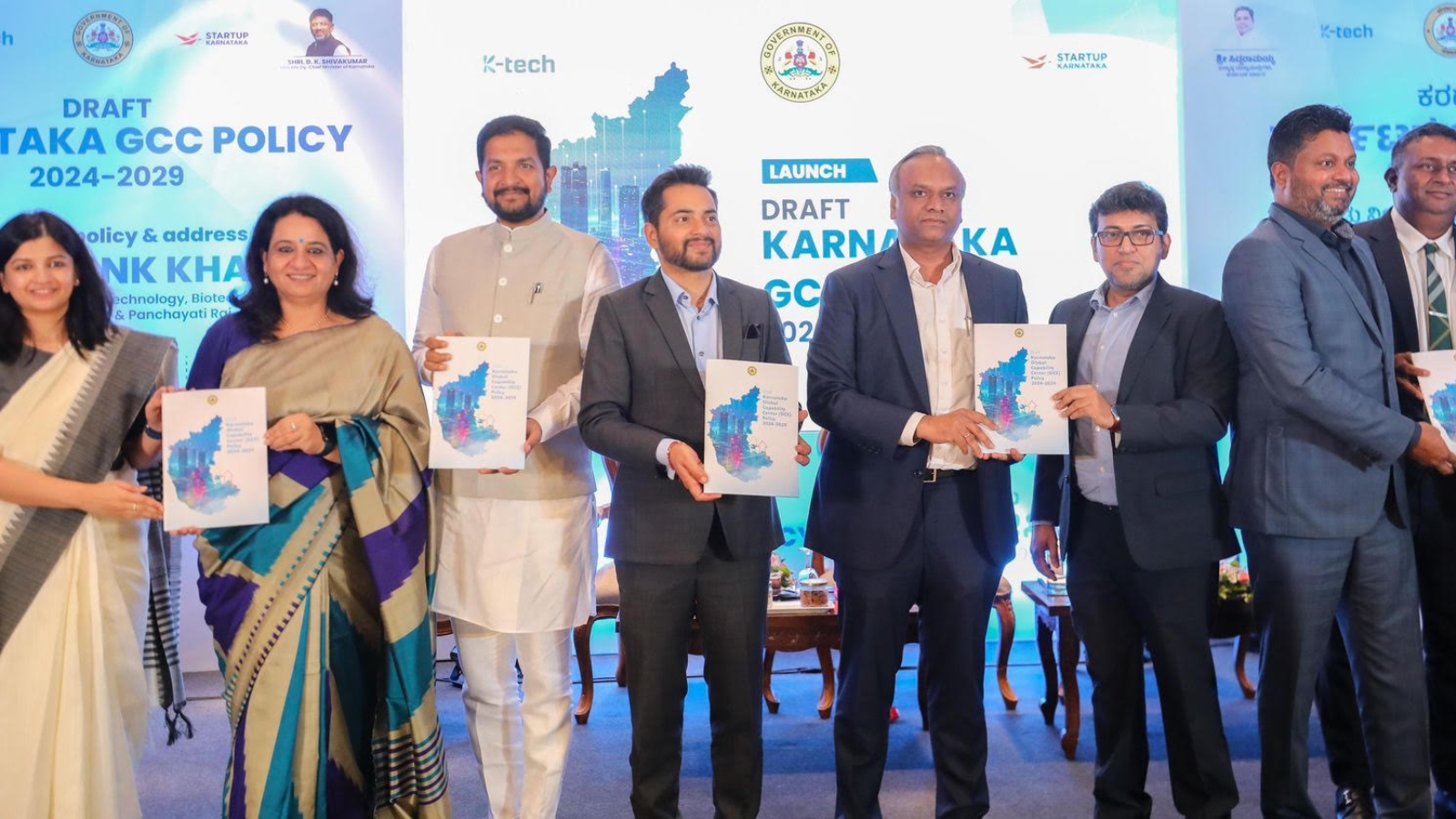 |
|
Karnataka, a state in southern India, has taken a significant leap forward in promoting its position as a global hub for business and innovation by unveiling the draft of India’s first-ever Global Capability Centre (GCC) policy. This comprehensive policy outlines an ambitious vision to establish 500 new GCCs by 2029, aiming to contribute significantly to the state’s economy and create 3.5 lakh jobs. The policy, currently open for public comment, invites input to refine and strengthen its objectives.
A GCC, in essence, is an offshore facility that provides services to a parent organization, typically a multinational corporation. Karnataka, already home to over 30 per cent of India’s GCCs and accounting for 35 per cent of the country’s workforce in this sector, is strategically positioned to further strengthen its GCC ecosystem. The policy sets an ambitious target of achieving an economic output of $50 billion from GCC operations by 2029.
Central to the policy’s success is the creation of an investor-friendly environment that attracts GCCs and facilitates their expansion in Karnataka. The policy positions the state as a global leader in Artificial Intelligence (AI), promoting research and development tailored specifically for GCCs. It fosters a research and development-driven environment, emphasizing deep-tech and emerging technologies, and provides platforms for collaboration between GCCs and the local innovation ecosystem. The policy also encourages decentralised growth through the ‘Beyond Bengaluru’ initiative, aiming to spread GCCs across various regions in the state.
Recognizing the importance of infrastructure and innovation, the policy places a strong emphasis on creating Global Innovation Districts in Bengaluru and beyond. These districts will provide cutting-edge infrastructure, fostering collaboration between startups, academic institutions, and businesses. The government has proposed creating Centers of Excellence (CoEs) focused on emerging technologies like AI and machine learning. Karnataka already houses 21 such CoEs and aims to expand this network further through public-private partnerships.
The ‘Beyond Bengaluru’ initiative, recognizing the need for balanced regional development, promotes the growth of GCCs in cities like Mysuru, Hubballi-Dharwad, Tumakuru, and Shivamogga. Companies establishing operations in these areas will receive a special package of financial incentives, including rent reimbursements, internet cost subsidies, and property tax exemptions. The policy also supports the establishment of Nano GCCs, which require fewer employees, making it easier for companies to set up operations.
To foster innovation and accelerate product development in Engineering Research and Development (ER&D), the policy emphasizes the importance of collaboration between industry and academia. Karnataka, already contributing over $34 billion to India’s GCC market size, is well positioned to leverage its strong ER&D capabilities further.
The policy also addresses the critical need for talent development. The government will provide recruitment assistance, skilling reimbursements, and support for leadership development. Internship programs aimed at providing hands-on experience to local talent will be a key component of the policy. The establishment of a Center of Excellence for AI in Bengaluru, focusing on research and development in artificial intelligence, is a crucial step in building a strong AI talent pool. An AI Skilling Council will develop AI-specific curricula that will be implemented across the state’s educational institutions.
The Karnataka government’s GCC policy represents a comprehensive strategy aimed at fostering a vibrant and competitive GCC ecosystem in the state. With a focus on innovation, talent development, and a supportive investment environment, the policy has the potential to solidify Karnataka’s position as a global leader in GCC operations. The policy’s success will rely heavily on public-private partnerships, collaboration between academic institutions and industry, and a continuous commitment to developing a skilled and future-ready workforce.
